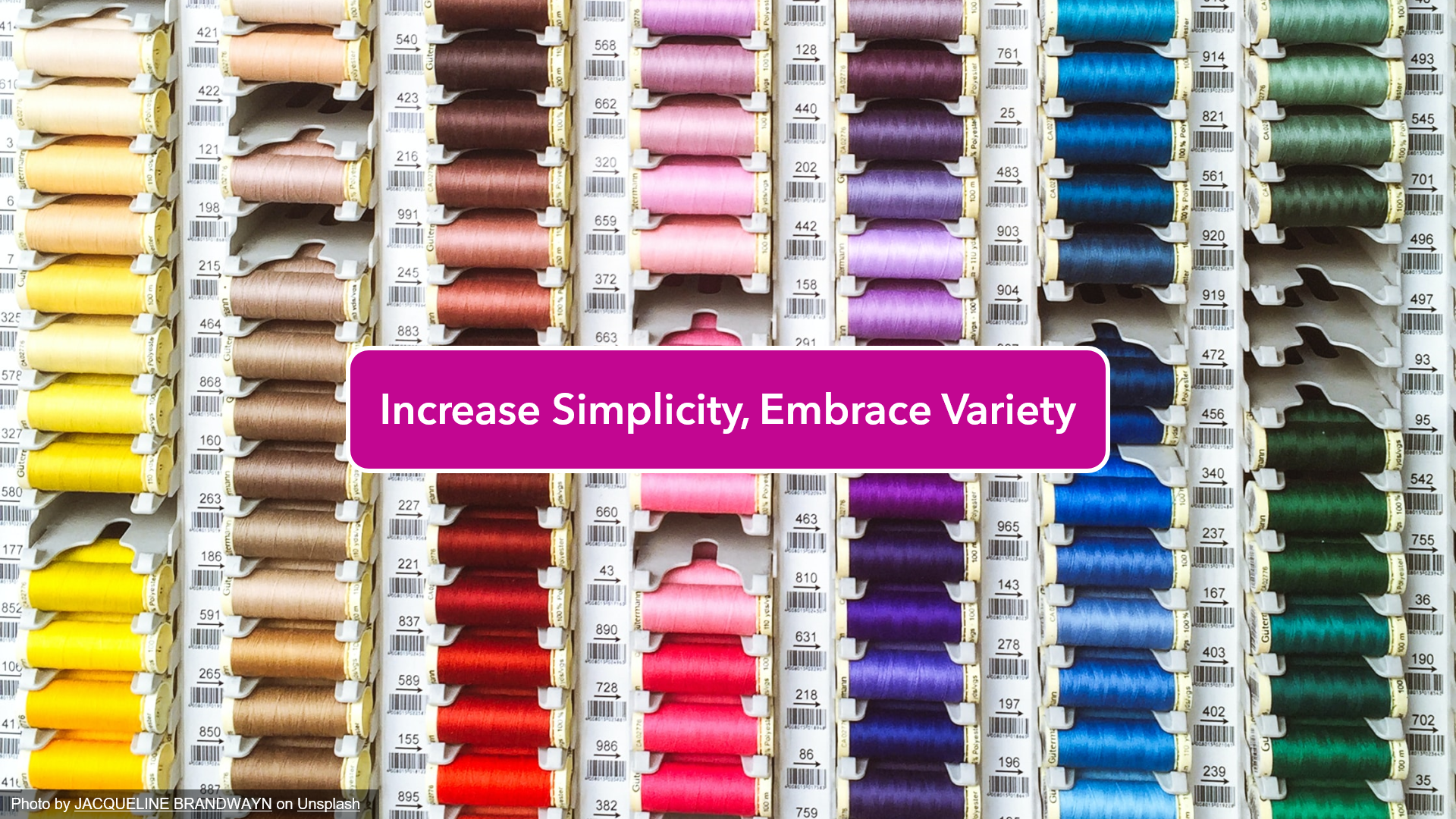Increase Simplicity, Embrace Variety
Author: Jurgen Appelo
I try not to be too reductionist in my approach to values and principles, which is why I intend to maintain a dynamic set of principles for unFIX. I acknowledge that, now and then, there is a good reason to discuss a principle, modify an existing one, or maybe even retire one. With this post, I introduce the second of what may become an ever-changing collection.
"If you want to survive as a parent, you must be smarter than all your children combined."
The quote above is how I sometimes explain the Law of Requisite Variety:
“In order to be efficaciously adaptive, the internal complexity of a system must match the external complexity it confronts.”
I learned about this essential systems law from my literature readings on complexity science and systems thinking. It makes total sense that a system with only a few internal states will, sooner or later, find itself outmatched by its more sophisticated context. In other words, to survive in an ever-changing environment, your business must have sufficient variety to deal with whatever it is confronted with.
Some people claim that tools must be simple. But this is not entirely true.
Tools should be as simple as possible without sacrificing variety.
I am pretty sure that the kitchen of any professional chef looks somewhat complicated to the average cook. Likewise, the toolset of any surgeon or dentist is quite incomprehensible to the average patient. And I dare to say that, as the author of four books, I probably use more writing tools than the average blogger or columnist.
Indeed, simple is preferred over complicated. When a chef can make any dish he wants with only seven types of knives, there is no reason for him to have twenty of them. When I can create all my blog posts, articles, books, and websites with just five or six editing tools, there is no reason for me to use twelve. Less complication makes life easier, but simplicity is not the goal!
The goal for your business is to survive and thrive in an ever-changing environment. This means that your company must have sufficient variety to deal with the complexity of its environment. Toolsets (such as the unFIX model) can help you with that. But the purpose of tools is not to be simple. The purpose of a toolset is to help you have just enough options and variety to be successful.
Note: Variety (complexity) in this article is not the same as the kind of variation in standard processes that the Lean community considers to be waste. The difference is explained here.
Increase Simplicity, Embrace Variety
If we can make our tools less complicated without sacrificing options and variety, we should definitely do that. We should simplify as much as we can while not losing any functions that might be essential later on. We should not go too far. Don't simplify for the sake of simplicity! Do not reduce the available options for our businesses to thrive in their environment.
The insights I gained from complexity science and systems thinking made me believe that variety needs to be one of the principles behind unFIX.
We add patterns to the unFIX model if they help users increase their options to deal successfully with the complexity in their environment. At the same time, we recognize that we should keep things as simple as possible. Needless complication is obviously undesirable. But reducing variety is not an option. No chef wants to run a restaurant with only one type of knife.
Many people are familiar with the quote, "Make everything as simple as possible, but not too simple," which is often attributed to Albert Einstein. It turns out that Einstein never said this, but he did say something very similar:
“It can scarcely be denied that the supreme goal of all theory is to make the irreducible basic elements as simple and as few as possible without having to surrender the adequate representation of a single datum of experience.”
Perhaps another way of phrasing all of the above would be, let's make things simple but not simplistic.
(Photo by JACQUELINE BRANDWAYN on Unsplash)

